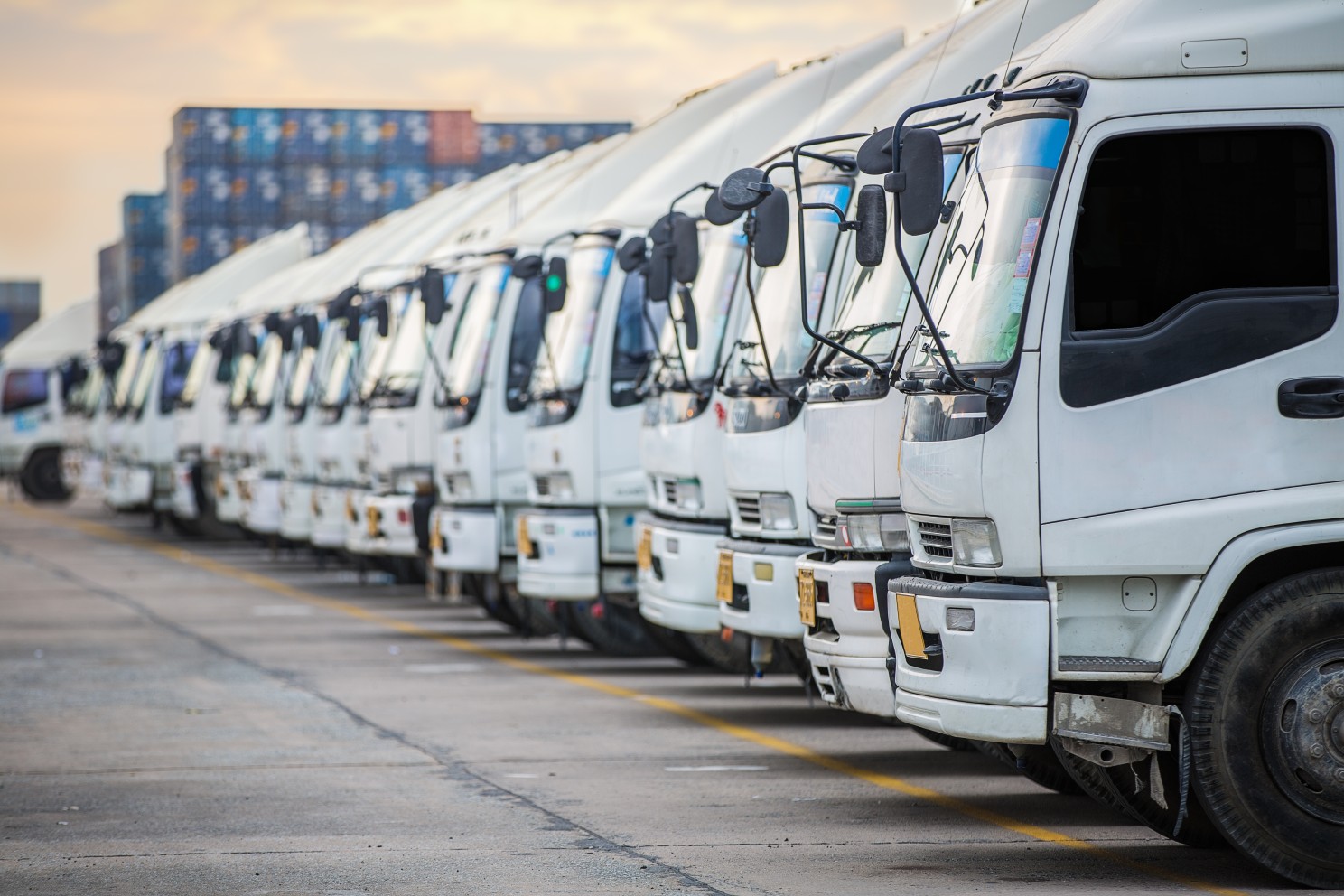
Susie Jones
Gli autisti di mezzi pesanti contestano il termine "carenza di autisti".
Creato: 15/08/2024
•
Aggiornato: 18/12/2024
L'11 aprile 2024, il [DfT] (https://www.fleetpoint.org/fleet-management-2/driver-shortage/consultation-opened-of-how-to-address-the-driver-shortage-for-hgv-and-coach/) ha aperto una consultazione sulle misure per alleviare la carenza di conducenti. Si tratta di proposte per consentire a una persona di sostenere gli esami di teoria e di manovra fuori strada prima di ottenere un'abilitazione provvisoria alla guida di mezzi pesanti.
Dopo la Covid-19 e la Brexit, il settore ha registrato un calo dei conducenti di mezzi pesanti. La pandemia ha ritardato i test 30.000 per i nuovi autisti e la Brexit ha colpito duramente le aziende di flotte, con molti camionisti europei che hanno lasciato il Regno Unito.
Un rapporto 2023 di SNAP suggerisce che il settore potrebbe raggiungere un "punto di svolta" (https://snapacc.com/tipping-point/) nei prossimi 10-15 anni. Con la rapida evoluzione del settore, gli ordini online sono una delle richieste in più rapida crescita e, se combinati con l'invecchiamento della forza lavoro, le esigenze del settore supereranno la carenza di autisti qualificati.
Cosa pensano gli autotrasportatori?
Su social media, SNAP ha chiesto agli autisti di esprimere la loro opinione sulla proposta del DfT. Molti autisti non hanno commentato lo schema, ma il 72,5% ha contestato il termine "carenza di autisti", definendolo allarmistico.
Invece, hanno dichiarato che i seguenti fattori causano l'abbandono del settore da parte dei conducenti esperti e, insieme, scoraggiano i nuovi candidati:
Salari
Del 72,5%, il 28% ha suggerito che la bassa retribuzione era un deterrente. I conducenti sulle pagine dei social media di SNAP hanno suggerito di poter guadagnare di più in professioni diverse:
Ho la patente di guida per mezzi pesanti, ma non voglio usarla. Attualmente guadagno di più all'ora come istruttore di guida. Non è affatto una carenza di autisti ".
*"Pagare gli autisti più soldi e dare loro strutture migliori".
Ci sono state idee sbagliate riguardo ai salari degli autisti di mezzi pesanti nel Regno Unito, con l'opinione che gli autisti di camion guadagnino più del lavoratore medio. Secondo [National Careers] (https://nationalcareers.service.gov.uk/job-profiles/large-goods-vehicle-driver), lo stipendio medio di un autista di mezzi pesanti nel Regno Unito va da 22.000 a 40.000 sterline, con gli autisti più esperti che guadagnano il massimo.

Strutture
Anche le strutture sono state messe sotto esame da molti: il 20% ha accusato gli standard scadenti di allontanare gli autisti qualificati. Lo standard delle strutture degli autogrill in tutto il Regno Unito è stato messo sotto esame dagli operatori del settore, e molti hanno dichiarato che non valgono i soldi spesi.
Il DfT ha intrapreso un'azione significativa con il suo programma di sovvenzioni da 6 milioni di sterline per il parcheggio dei mezzi pesanti e il benessere degli autisti (https://www.smmt.co.uk/2024/05/first-class-facilities-truckstops-to-be-upgraded-with-16-5m-funding/#:~:text=Under%20the%20plans%2C%2038%20truckstops,significantly%20upgrade%20facilities%20for%20drivers.) - sostenuto da altri 10,5 milioni di sterline da parte dell'industria. Il programma investirà in 38 aree di sosta per autocarri in tutta l'Inghilterra per migliorare le strutture per gli autisti, tra cui nuove docce e ristoranti, oltre a migliorare la sicurezza.
Oltre a migliorare le strutture, si spera che il progetto crei circa 430 nuovi posti auto per i mezzi pesanti, riducendo così i parcheggi in sosta e i siti che si riempiono entro le prime ore della sera.
Mancanza di lavoro
Il 20% degli autisti ha spiegato di avere la patente ma di non riuscire a trovare lavoro. Secondo l'Office for National Statistics (ONS), nel Regno Unito ci sono più di 183.000 posti di lavoro per la guida di mezzi pesanti. Ciononostante, ogni regione ha opportunità di lavoro diverse, il che comporta una domanda diseguale in tutto il Regno Unito. Diversi autisti hanno condiviso le loro esperienze di difficoltà a trovare lavoro:
*"Sono in possesso di una classe 1 da sette mesi e non riesco a trovare lavoro. Mi piacerebbe sapere dov'è la carenza".
*"Quale carenza? Non c'è molto lavoro in palio".
Certificato di competenza professionale del conducente
Il 10% che non era né d'accordo né in disaccordo con l'espressione "carenza di conducenti" ha dichiarato che il Certificato di competenza professionale del conducente (CPC) ha svolto un ruolo fondamentale nella riduzione del numero di conducenti di mezzi pesanti.
Introdotto nel 2009, il CPC mira a migliorare la sicurezza stradale, la professionalità e la consapevolezza ambientale, oltre a garantire che i conducenti siano aggiornati su tutti i requisiti di salute, sicurezza e legge. I risultati di una consultazione sulla revisione delle politiche del CPC hanno rilevato che il 47% dei conducenti di mezzi pesanti ha dichiarato che è inefficace o molto inefficace. Dai social media di SNAP, un autista ha commentato:
"Sbarazzatevi del CPC e io prenderò i turni. Non pagherò per fare 35 ore, imparando a fare quello che ho passato anni a fare ogni giorno ".
Il Governo ha delineato una serie di modifiche al CPC per aumentare la flessibilità nel rinnovo e nel recupero della qualifica. Tra le modifiche alla durata del corso, il governo svilupperà un maggior numero di contenuti di base del corso in collaborazione con la Driver and Vehicle Standards Agency.
Fattori esterni, come la Brexit e la COVID-19, combinati con questioni legate al settore, hanno avuto un impatto significativo sui tassi di occupazione nel settore dell'autotrasporto. In un ambiente in continua evoluzione, il settore deve continuare ad apportare cambiamenti, ove necessario, per attrarre e trattenere un maggior numero di conducenti.
Informazioni su SNAP
SNAP è il mercato digitale che collega i viaggi delle flotte dal deposito alla destinazione in tutta Europa attraverso la tecnologia, la sicurezza e una vasta rete europea.
Il servizio viene utilizzato ogni 13 secondi da uno degli oltre 190.000 camionisti che utilizzano il sistema di pagamento SNAP. Le transazioni avvengono attraverso una rete di oltre 600 partner di servizi per camion in tutta Europa. Iscriviti gratuitamente


